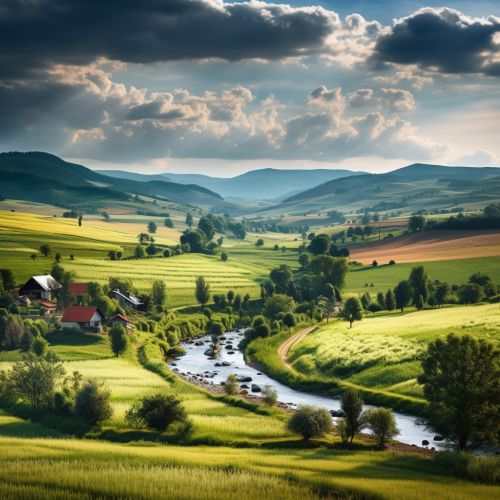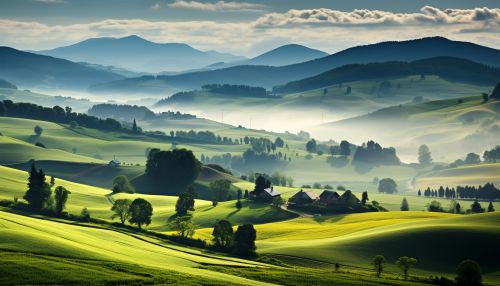Czech Republic
Geography
The Czech Republic is a landlocked country in Central Europe. It is bordered by Germany to the west, Austria to the south, Slovakia to the east, and Poland to the northeast. The country's total area is 78,866 square kilometers, making it slightly smaller than the U.S. state of South Carolina. The country is known for its diverse landscapes, which include vast lowlands, hilly regions, and mountainous areas.


History
The history of the Czech Republic is characterized by its location in the heart of Europe. It has been a crossroads for many cultures over the centuries. The first Slavic tribes arrived in the 6th century, and the Premyslid dynasty established a kingdom in the 9th century. The country reached its peak under Charles IV, who was crowned Holy Roman Emperor in 1355. The Hussite Wars in the 15th century led to religious conflict and political fragmentation. The country came under Habsburg rule in 1526, and remained so until the end of World War I, when it became part of the newly formed Czechoslovakia.
Politics
The Czech Republic is a parliamentary republic, with the President as the head of state and the Prime Minister as the head of government. The political system is characterized by a multi-party system, with power often held by a coalition of parties. The Parliament of the Czech Republic is bicameral, consisting of the Chamber of Deputies and the Senate. The country is a member of the United Nations, the European Union, and NATO, among other international organizations.
Economy
The Czech Republic has a developed, high-income economy with a per capita GDP rate that is significantly higher than the European Union average. The country is known for its high level of industrialization and its strong emphasis on exports. Major industries include automotive, mechanical engineering, chemical engineering, electronics, and IT. The country is also known for its traditional industries, such as brewing, glassmaking, and ceramics.
Culture
The Czech Republic has a rich cultural heritage, with numerous castles, chateaus, and historical cities. The country has 14 UNESCO World Heritage Sites, including the historic centers of Prague, Český Krumlov, and Kutná Hora. The Czech Republic is also known for its contributions to literature, music, and the arts. Notable Czechs include writer Franz Kafka, composer Antonín Dvořák, and artist Alphonse Mucha.
